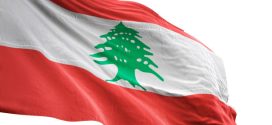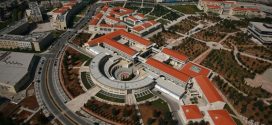Antelias, October 20, 2003
The Union Catholique Internationale de la Presse– Lebanon declares that the project of privatization of the UNESCO Palace in Beirut trheatens the Lebanes culture and wishes that the Lebanese Syrian coordination in the field of information will lead to more freedoms of information and to a reform in both countries. In its communiqué, the UCIP states the following:
1- The privatization project of the UNESCO Palace about which the media have been talking much, holds a strong threat to the Lebanese culture, transforming intellectual activity into a good put at the disposal of the capital, the cultured persons into civil servants rendering services to public institutions, the nation into a company or a group of companies leaving no space for any of the freedoms required by authentic culture. Which harms the role that Lebanon has always played in its Arab and Islamic environment. Strangely, this project comes at a time when UNESCO is trying to promote national cultures and cultural pluralism to counter the American hegemony and the multinationals.
Based on the principle of cultural pluralism, that considers that any intellectual product cannot be submitted to market rules, materialism of men or social relations, this subject representing a violation of one of the national intellectual and social constant terms, the UCIP urges the civil society to understand the danger represented by this project and to react in order to stop its execution.
2- The UCIP has followed the meetings of the Lebanese Syrian Information Committee in which the Lebanese Minster of Information participated. While the UCIP appreciates the cooperation taking place in the field of information between the two countries – it wishes however that this cooperation will not be accomplished as the Lebanese public opinion has been having the chance to witness in all kinds of cooperation that re taking place at the expense of Lebanon and the principles of freedom affirmed by the Lebanese Constitution and impeaching the active role of the private sector in Lebanon.
It is becoming clear that freedom of information constitutes a main element of support to the national affairs, contrary to what some globalistic thinkers believe. It is thus a priority need to promote official media in Lebanon and to develop them in Syria I order to give them the possibility to play efficiently their cultural and professional role. It is also indispensable to support all medias in this stage of so many challenges for both countries.
3- The death of 51 journalists in the world in 2003 remind us of the dangers that still threaten the press but asserts also the importance of the role of the medias in expressing the issues of society and observing the performance of the officials, in order to contribute to the progress of societies and public service. The press seems today more than ever a mission that lacks most of all an atmosphere of freedom, mutual culture and participation in decision making between the power and the public opinion, away from dictatorship, so that these civilized means can play their positive role.


 الاتحاد الكاثوليكي العالمي للصحافة- لبنان اوسيب – لبنان
الاتحاد الكاثوليكي العالمي للصحافة- لبنان اوسيب – لبنان




